When it comes to your gear, there are two primary schools of thought. It should sink, so if you lose it going over the beach or during a river and stream crossing, someone won’t find it. The other is that it should float; the main reason for that is so you won’t be pulled down, but if you are going over the beach, doing a river and stream cross or taking a ship down and you go overboard and are knocked out it can help float you. So, what is the correct answer?
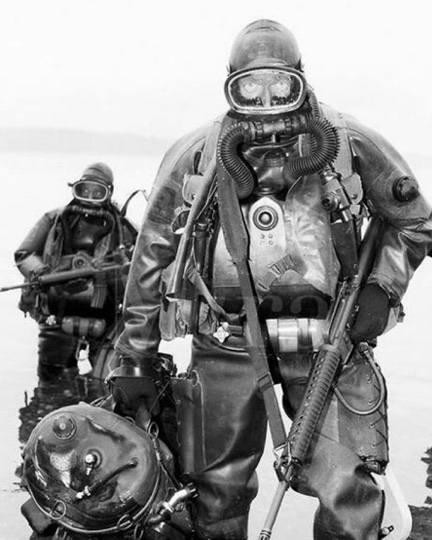
Well, they both are for different operations. You have to take everything into account. If you are conducting a ship attack and coming up behind it on a High-Speed Assault Craft (HSAC) or Combat Craft Assault (CCA), you will want your stuff to float or be able to float (yes, there is a time when you fall in depending on where it happens, you might want to go underwater to avoid something). If you are doing a two-stage ladder-climbing onto an oil platform and you fall and get knocked out, you want to float or at least have a life vest that will inflate automatically.
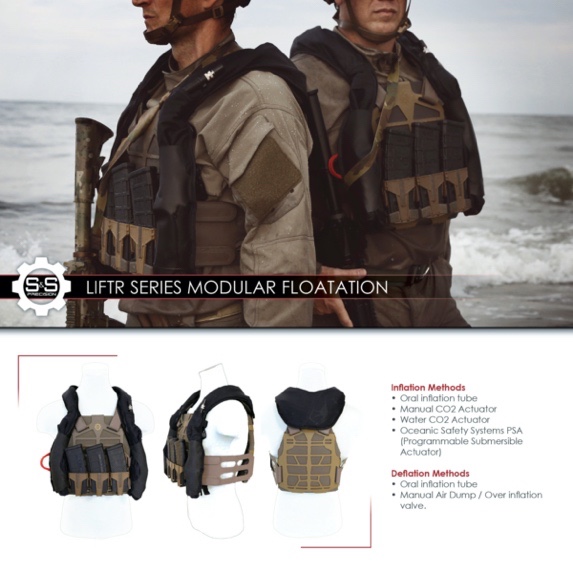
You should look at it like this, your gear should float itself or be neutrally buoyant, and if you want to float, you need to have something on you for that. Think of you and your gear as two different things. If you go into the water, your kit should be neutral, and you should have some type of Personal Flotation Devise(PFD) for yourself. Still, you should always be able to go underwater if needed, like for going under a wave or if you need to avoid someone/ something.
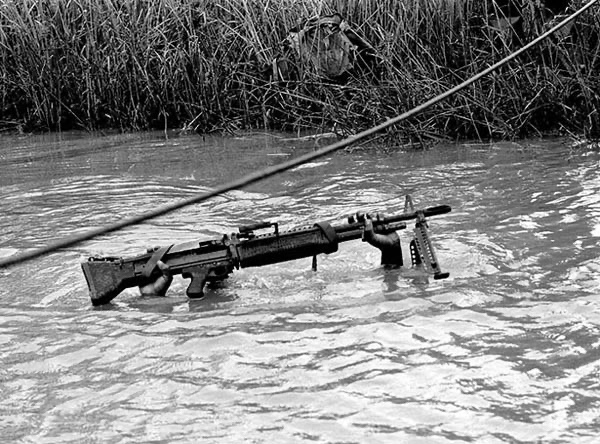
So how do you make your gear neutral buoyant? The best way to start is by knowing how much everything you are carrying weights. I will go old school, so let’s use 100rds of 7.62 x 39 weights 7 pounds. You should have a list of what things weigh or have a good idea of everything you might take out in the field with you. Keep in mind that if you are using a hard water bottle, like a canteen or Nalgene bottle, as you drink from it, it will start to float. It won’t be so bad as to affect you that much but keep it in mind as you stay out in the field, things weights will change. The same goes for needing to float. You can always use them in an emergency. MSR makes water storage bladders that are great to have in your pack. They can be used as flotation if needed and water. Even in the jungle in the rainy season, it never hurts to have a way to store extra water. When you come across water, always take as much as you can carry.
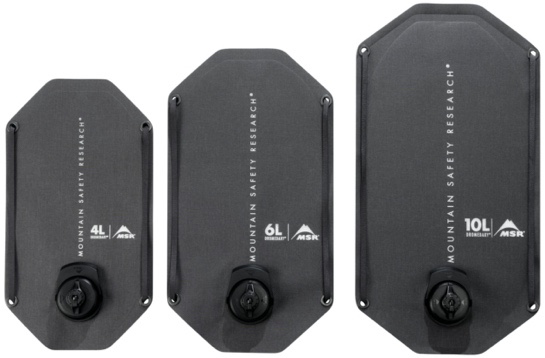
If you have other things that might float like your fins, chemical light, or rucksack liner (and never go anywhere without that old school ruck liner). Try using the lead weights that are made for balancing a car tire. Most come with an adhesive side. You can put it anywhere you need. They also come in black. You can put them on the side of the fins; this way, it doesn’t affect the way the fin performs, and if for some reason it falls off, or you drop it, it will sink. If you have chemical lights on you to use for signaling, or as an old school frogman flashlight (when you have it all taped up for use underwater and you have the end open so you can use it for your compass) if you put lead solder on them and drop it, it will sink and not float away.
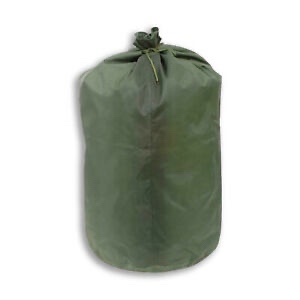
Remember that packaged food (MREs, Mountain house meals) will float.
If you are taking a new piece of gear out, let’s say it’s a new pack make sure you take it to the pool and see how it acts in the water, put some weight in it and see what it takes to make it sink, don’t just throw it in and say “yup it sinks” leave it in there so it is nice and soaked so you can also see how it drains, do you need to add more drain holes? How heavy will it be when it is wet and how long will it take to dry. With today’s technology almost everything can float or even be close to neutral to include body armor plates.

So, what is the right answer, float or sink? I think they both are the correct answer depending on the situation. But the key is to make sure you are ready for whatever might happen during any giving case. Have your gear set up so it can float itself if needed. So do your homework, or at least hang out with someone that does.


Another great piece.
Yeah wet/dry weights are a big deal as is what floats and what doesn’t. I’d add boots to your list – some newer boots float very well (good to know for selection swim tests…).
Always reminds me of turning up for loaded runs and yomps, fully to spec weight. Then staff turning a hose on us and boom, an instant 30% more weight. Learnt to know gear weights very intimately ha ha.
Good point about boots, another reason the old school jungle boots were great.